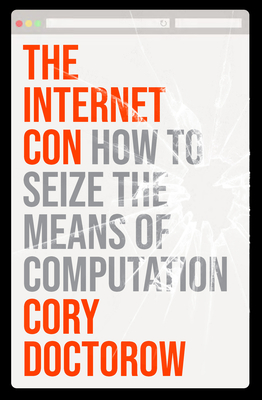What do you think?
Rate this book


192 pages, Hardcover
First published September 5, 2023
Long before we break up Facebook or Google or Microsoft or Apple, we can offer immediate, profound relief to the people whose freedom of motion is hemmed in by tech's walled gardens. We don't have to wait for breakups to allow someone to install a third-party app, or bypass heavy-handed (or overly tolerant) moderation, or overcome the algorithmic burial of their material. We can do that right now, with interop.
And when we do, we hasten breakups! The bullying that walled gardens enable isn't driven by sadism, after all, but by profit.